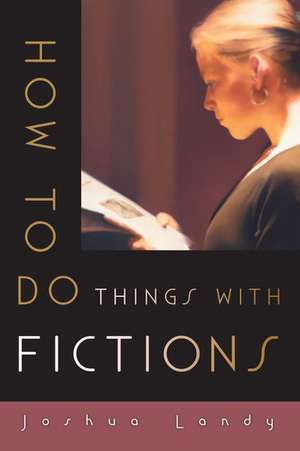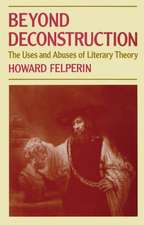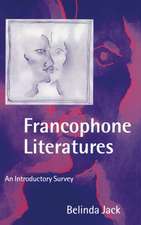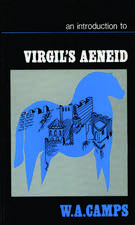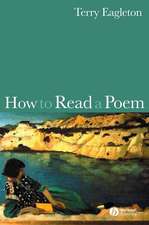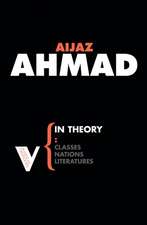How to Do Things with Fictions
Autor Joshua Landyen Limba Engleză Paperback – 24 iul 2014
| Toate formatele și edițiile | Preț | Express |
|---|---|---|
| Paperback (1) | 260.14 lei 31-37 zile | |
| Oxford University Press – 24 iul 2014 | 260.14 lei 31-37 zile | |
| Hardback (1) | 516.92 lei 31-37 zile | |
| Oxford University Press – 23 aug 2012 | 516.92 lei 31-37 zile |
Preț: 260.14 lei
Preț vechi: 302.04 lei
-14% Nou
Puncte Express: 390
Preț estimativ în valută:
49.79€ • 54.11$ • 41.85£
49.79€ • 54.11$ • 41.85£
Carte tipărită la comandă
Livrare economică 09-15 aprilie
Preluare comenzi: 021 569.72.76
Specificații
ISBN-13: 9780199378203
ISBN-10: 0199378207
Pagini: 268
Ilustrații: 5 illus.
Dimensiuni: 156 x 234 x 16 mm
Greutate: 0.42 kg
Editura: Oxford University Press
Colecția OUP USA
Locul publicării:New York, United States
ISBN-10: 0199378207
Pagini: 268
Ilustrații: 5 illus.
Dimensiuni: 156 x 234 x 16 mm
Greutate: 0.42 kg
Editura: Oxford University Press
Colecția OUP USA
Locul publicării:New York, United States
Recenzii
This book may be most valuable for its call to pedagogical reform. It would be helpful for revising the aims of broad world-lit surveys or humanities courses, or, indeed, for reframing almost any literature class. ...Landy's book also offers persuasive talking points for any defense of the liberal arts mission... His book is a good manual for training Landy's own readers in how to become formative teachers.
Joshua Landy has no patience for the simple-minded moral didacticism that permeates recent literary theory and philosophy. Sure-footed and light-handed, he emphasizes the 'formative' rather than the 'informative' function of literary fiction. Eloquent, erudite, witty, and just as passionate, Landy has given us a new way of looking at the importance of fiction for life
What do we gain from reading fiction? Joshua Landy's brilliant new book advances a provocative answer with impressive verve, erudition, and insight. His discussion ranges from the New Testament to Plato, Mallarme, and Beckett, among many others. No reader will put down the book unaffected, or think of fiction in quite the same way again.
In this wonderfully engaging book, Joshua Landy writes against all of those (rather depressing) theories that argue for literary texts as guides for moral improvement, or as 'messages' for the reader. Instead, Landy identifies what he calls 'formative fiction' - literature that trains the reader in the act of reading itself - a compelling and refreshing study.
This terrific book pulls no punches in engaging with scholarly debates, critiquing an array of knowledge-seeking approaches to fiction. Landy's constructive work, exemplified in the verve and affection with which he treats his 'formative fictions,' is persistently humane and practical, pressing us for openness to the vital exercise fictions offer.
If we persist in reading complicated books for something more than their plot, Landy has at least given us a series of thoughtful and persuasive reasons for doing so.
It is rare to read a work in which the sense comes through so fully of what it must be like to sit in the author's classroom; in this case, it is clear that Stanford students enjoy an intellectual treat, one now available to many others...Essential.
Joshua Landy has no patience for the simple-minded moral didacticism that permeates recent literary theory and philosophy. Sure-footed and light-handed, he emphasizes the 'formative' rather than the 'informative' function of literary fiction. Eloquent, erudite, witty, and just as passionate, Landy has given us a new way of looking at the importance of fiction for life
What do we gain from reading fiction? Joshua Landy's brilliant new book advances a provocative answer with impressive verve, erudition, and insight. His discussion ranges from the New Testament to Plato, Mallarme, and Beckett, among many others. No reader will put down the book unaffected, or think of fiction in quite the same way again.
In this wonderfully engaging book, Joshua Landy writes against all of those (rather depressing) theories that argue for literary texts as guides for moral improvement, or as 'messages' for the reader. Instead, Landy identifies what he calls 'formative fiction' - literature that trains the reader in the act of reading itself - a compelling and refreshing study.
This terrific book pulls no punches in engaging with scholarly debates, critiquing an array of knowledge-seeking approaches to fiction. Landy's constructive work, exemplified in the verve and affection with which he treats his 'formative fictions,' is persistently humane and practical, pressing us for openness to the vital exercise fictions offer.
If we persist in reading complicated books for something more than their plot, Landy has at least given us a series of thoughtful and persuasive reasons for doing so.
It is rare to read a work in which the sense comes through so fully of what it must be like to sit in the author's classroom; in this case, it is clear that Stanford students enjoy an intellectual treat, one now available to many others...Essential.
Notă biografică
Joshua Landy is the Andrew B. Hammond Professor of French and Professor of Comparative Literature at Stanford University, where he co-founded and co-directs the Initiative in Philosophy and Literature. He is author of Philosophy as Fiction: Self, Deception, and Knowledge in Proust and coeditor, with Michael Saler, of The Re-Enchantment of the World: Secular Magic in a Rational Age.
